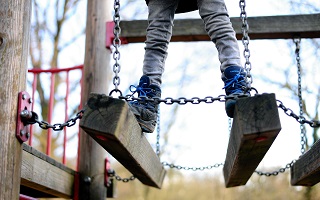 Research shows that more than 80,000 children annually experience the trauma and stress of having a parent in the Australian justice system. Of these children, it is estimated that 70% go on to become juvenile offenders, and more than 85% of those who do will also become adult offenders.
Research shows that more than 80,000 children annually experience the trauma and stress of having a parent in the Australian justice system. Of these children, it is estimated that 70% go on to become juvenile offenders, and more than 85% of those who do will also become adult offenders.
Tjillari Justice Aboriginal Corporation is a not for profit organisation founded in 2014, by Deb Evans to address the trauma children experience when they have a parent involved in the justice system.
“We are a research and evidence-based transformational enterprise, established to break the cycle of inter-generational offending in the Aboriginal and Torres Strait Islander community in the ACT”, says Deb.
“Our years of research and experience have shown that the way to address this trauma is to build on the cultural identity, skills and ability of the people who surround them. This model creates positive family and community connections,” adds Deb.
Based on this knowledge Tjillari Justice has moved to a Family Justice Model of service delivery. This model taps into the strengths of families and communities.
The NSW Standing Committee on Law and Justice (1999) found that one of the most effective forms of crime prevention is social support. Early childhood intervention can develop children’s executive functioning skills. Education and counselling increases resilience, equips children with protective behaviours in the face of trauma and stress and lessens the risk of future involvement in crime.
Deb says that by identifying family strengths, productive behaviours and successful coping mechanisms, we are able to develop a personal case management plan in partnership with our clients, their family members and community agencies.
“Our aim is to advocate on behalf of children, to represent them and their perspectives, and to advise on policy development and the implementation of positive strategies to make a substantial difference for children at risk,” says Deb.
“When vulnerable children and families are given strategies to build executive functioning skills and personal resilience, their outcomes improve and this benefits the children, their families and the community.
“Along with family dislocation, children often face social exclusion, economic and social change, poor housing, parental unemployment and addictive behaviours.
“A growing number of Aboriginal and Torres Strait Islander children are separated from their families and placed in Out of Home Care, contributing to poorer outcomes and increased intergenerational offending,” adds Deb.
With support, children who might otherwise have followed an incarcerated parent’s path are diverted from patterns of behaviour that lead to offending.
A testament to Tjillari’s achievements is its rapid growth and its recent ACT NAIDOC award for Organisation of the year. The NAIDOC awards celebrate the history, culture and achievements of Aboriginal and Torres Strait Islander peoples.
To find out more about Tjillari Justice visit http://tjillarijustice.com.au/


